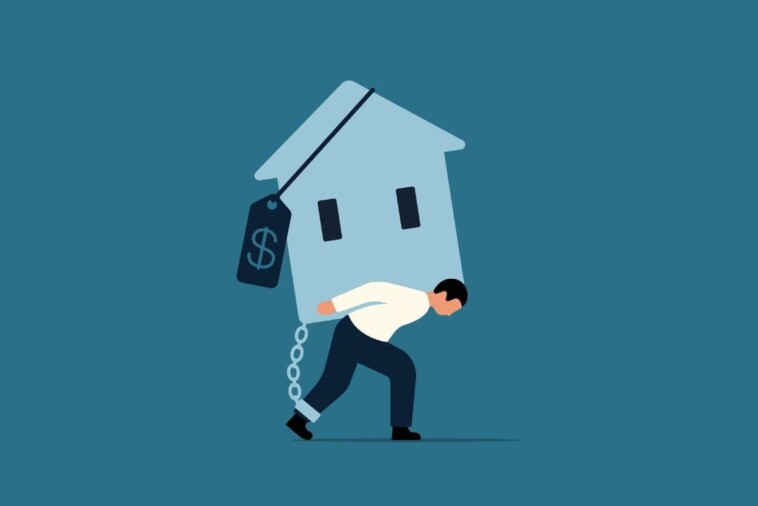
Some local media outlets and residents claim that Puerto Rico is experiencing a worsening housing crisis, driven by a surge in homeless individuals arriving from Florida. This influx stems from new local laws targeting homelessness, highlighting a more significant problem: the absence of effective federal policies to manage internal migration and homelessness.
The HB 1365 law, enacted by Governor Ron DeSantis, prohibits homeless individuals from sleeping in public spaces like sidewalks and parks. This has led to a growing number of homeless people relocating to Puerto Rico, believing that they will find housing more easily. Additionally, a recent U.S. Supreme Court decision (City of Grants Pass v. Johnson) upheld laws criminalizing sleeping in public, adding further pressure and having homeless to seek alternatives outside of Florida.
Jose A.B. Nolla 🌻🇵🇷 on X (formerly Twitter): “Florida tiene nueva ley que limita dormir en espacios públicos https://t.co/s6lWFHJdG1 A new law in Florida criminalizes camping in public spaces, increasing concerns about impacts on Puerto Rico’s housing crisis as more homeless individuals from the mainland seek shelter. It’… / X”
Florida tiene nueva ley que limita dormir en espacios públicos https://t.co/s6lWFHJdG1 A new law in Florida criminalizes camping in public spaces, increasing concerns about impacts on Puerto Rico’s housing crisis as more homeless individuals from the mainland seek shelter. It’…
Although this law may seem like a local solution to a public safety problem, its effects are directly impacting the island, which was already suffering from a housing crisis due to a lack of supply and rising rental prices.
Some residents point to a broader failure in federal coordination. The Biden-Harris administration has not effectively addressed the flow of homeless citizens, contributing to the displacement of those across states and territories. Puerto Rico, with its limited housing resources, is particularly vulnerable to this internal relocation and is now feeling the strain of these displaced populations.
The U.S. Department of Housing and Urban Development reported a 12% increase in homelessness nationwide in 2023. Economic hardships, job losses, and rising rental costs have left thousands of Americans without a home. Puerto Rico, already dealing with its own homelessness crisis—estimated at 5,000 people—has seen this number swell as individuals from the continental U.S. arrive, expecting to find shelter.
Local organizations, like Solo por Hoy, Inc., are overwhelmed by the influx. Misleading information circulating in the U.S. has convinced many that Puerto Rico offers easier access to housing, only for them to arrive and find the process slow and complex. Belinda Hill, the director of Solo por Hoy, explains that many homeless people come to Puerto Rico under the false impression that affordable housing will be readily available. “We receive calls from people staying in Airbnbs, demanding assistance to pay for them, thinking they can rely on our housing vouchers,” Hill notes. “This used to happen occasionally, but now it’s a daily occurrence.”
The lack of a unified federal approach to manage this problem has left Puerto Rico in a precarious situation. Some argue that without effective controls or policies to address the displacement of homeless individuals, the island is bearing the brunt of Florida’s local decisions. As Puerto Rico prepares for the additional impact of Hurricane Milton, the housing crisis is likely to worsen, with even more people left homeless.
According to the federal Department of Housing and Urban Development, in December 2023, there were 256,000 homeless people in the United States. Homelessness increased by 12 percent between 2022 and 2023 in the U.S.
Additionally, this phenomenon is a clear indication of the lack of coordination between states and the federal administration to control the information provided to homeless individuals. Herein lie the consequences of policies without considering each state’s capacity to receive more and more people, which is why they are left on the streets…
Microjuris reported:
“Here they receive services because they are U.S. citizens, they cannot be denied service, but there is a whole process and requirements to meet. Some already residing in Puerto Rico have been patiently waiting and have priority. We need the government to take measures to address a housing crisis that will very likely worsen,” said the director of Solo por Hoy, Inc.
The housing crisis in Puerto Rico is a stark reminder that the lack of control over state policies has devastating consequences. Is it though this uncontrolled flow of homeless individuals the responsibility of the federal administration? And should the Biden and Harris Administration do anything to rectify their policies before the situation becomes even more unsustainable?

Subscribe to Our Newsletter


